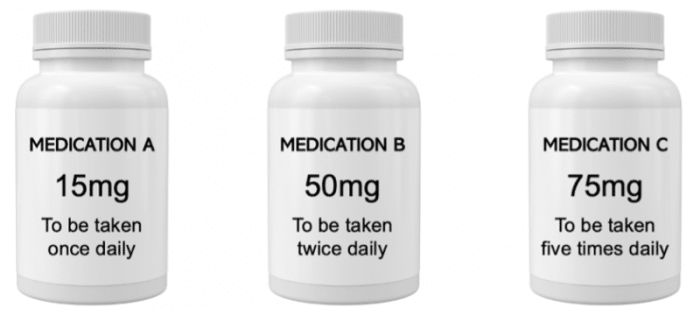Dosage Calculation 3.0 Powdered Medications Test: A Comprehensive Guide to Ensuring Accurate Medication Administration. In this comprehensive guide, we delve into the principles, testing methods, and ethical considerations involved in dosage calculation for powdered medications, empowering healthcare professionals with the knowledge and tools to ensure precise and safe medication administration.
The accurate calculation of powdered medication dosages is crucial for patient safety and treatment efficacy. This guide provides a systematic approach to dosage calculation, addressing common errors and offering troubleshooting guidance. Additionally, it highlights the ethical responsibilities of healthcare professionals in dosage calculation and provides resources for further learning.
Dosage Calculation for Powdered Medications

Dosage calculation for powdered medications involves determining the correct amount of medication to administer to a patient. This calculation is based on the patient’s weight, the desired dose, and the concentration of the medication.
To calculate the dosage, the following formula is used:
Dose (mg) = Weight (kg) x Desired dose (mg/kg) x Concentration (mg/mL)
For example, if a patient weighs 50 kg and the desired dose is 10 mg/kg, and the concentration of the medication is 100 mg/mL, the dose would be calculated as follows:
Dose (mg) = 50 kg x 10 mg/kg x 100 mg/mL = 500 mg
Test for Dosage Calculation Accuracy

Testing dosage calculation accuracy is essential to ensure that patients receive the correct amount of medication. This testing can be done using various methods, including:
- Manual calculation: This involves performing the dosage calculation manually using the formula provided above.
- Online calculators: There are several online calculators available that can be used to calculate dosages for powdered medications.
- Pharmacy software: Many pharmacies use software that includes dosage calculation functionality.
It is recommended to use a combination of methods to ensure accuracy.
Troubleshooting Dosage Calculation Errors
Dosage calculation errors can occur for various reasons, including:
- Incorrect patient weight
- Incorrect desired dose
- Incorrect concentration
- Mathematical errors
To troubleshoot dosage calculation errors, it is important to:
- Review the patient’s chart to verify the weight and desired dose.
- Check the concentration of the medication.
- Perform the calculation again carefully.
Resources for Dosage Calculation
There are several resources available to help with dosage calculation, including:
- Dosage calculation textbooks
- Online dosage calculation calculators
- Pharmacy software
- Pharmacists
It is important to use reputable resources and to be familiar with the specific medication being administered.
Ethical Considerations in Dosage Calculation: Dosage Calculation 3.0 Powdered Medications Test

Dosage calculation is a critical aspect of medication administration and involves ethical considerations, including:
- Accuracy: It is essential to calculate dosages accurately to ensure patient safety.
- Patient confidentiality: Patient information, including weight and desired dose, must be kept confidential.
- Professionalism: Healthcare professionals must maintain a professional demeanor and avoid errors.
By adhering to ethical guidelines, healthcare professionals can ensure that patients receive the correct amount of medication and that their rights are respected.
Question & Answer Hub
What are the key principles of dosage calculation for powdered medications?
The key principles involve understanding medication concentration, patient weight or body surface area, and the desired dose.
How can I test the accuracy of my dosage calculations?
Regular testing using standardized methods, such as the “two-person rule” or automated calculation tools, is recommended.
What are the common errors that occur during dosage calculation?
Errors can arise from incorrect medication concentration, patient data, or mathematical calculations.
What are the ethical considerations involved in dosage calculation?
Healthcare professionals must adhere to ethical guidelines, prioritize patient safety, and avoid conflicts of interest.